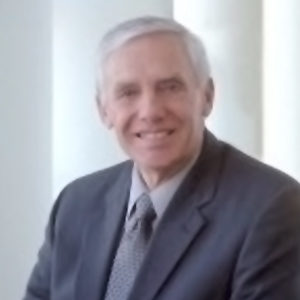 Dr. Hall is the Jack E. and Frances Brown Chair and Professor of Chemical Engineering at Texas A&M University (TAMU); Regents’ Professor; Associate Dean for Research and Graduate Studies and Director of the Texas A&M Engineering Experiment Station (TEES) Division for TAMU at Qatar. He has worked with AMOCO and ChemShare and taught at the University of Virginia. At TAMU, he was Associate Dean of Engineering; Assistant, Associate and Deputy Director of TEES, Associate Vice Chancellor and Head of Chemical Engineering. He was Director of the Chemical & Transport Systems Division at NSF. He is a Fellow of the American Institute of Chemical Engineers (AIChE). He has received the Donald L. Katz Award from Gas Processors Association, the Institute Award for Excellence in Industrial Gases Technology from AIChE, and the L.S. Reid Award from International School for Hydrocarbon Measurement. He has 259 refereed publications, 7 books and 14 patents.
Dr. Hall is the Jack E. and Frances Brown Chair and Professor of Chemical Engineering at Texas A&M University (TAMU); Regents’ Professor; Associate Dean for Research and Graduate Studies and Director of the Texas A&M Engineering Experiment Station (TEES) Division for TAMU at Qatar. He has worked with AMOCO and ChemShare and taught at the University of Virginia. At TAMU, he was Associate Dean of Engineering; Assistant, Associate and Deputy Director of TEES, Associate Vice Chancellor and Head of Chemical Engineering. He was Director of the Chemical & Transport Systems Division at NSF. He is a Fellow of the American Institute of Chemical Engineers (AIChE). He has received the Donald L. Katz Award from Gas Processors Association, the Institute Award for Excellence in Industrial Gases Technology from AIChE, and the L.S. Reid Award from International School for Hydrocarbon Measurement. He has 259 refereed publications, 7 books and 14 patents.
Research
Thermophysical Fluid Properties
The thermophysical properties of fluids are vitally important for practical and theoretical considerations. In our research group, we investigate these properties using both experimental and theoretical techniques. Our experiments cover wide ranges of temperature and pressure for the properties: density, phase equilibrium and thermal effects. We also produce derived data from the primary experimental measurements, such as virial coefficients and energy/entropy functions. These state-of-the-art experiments ensure that the data are useful for developing and testing theoretical models. The existing apparatuses are: a Burnett apparatus, a magnetically coupled densimeter, an isochoric apparatus, and various ancillary equipment used in connection with them. Our theoretical efforts encompass model development (equations of state, excess properties) and fundamental studies of thermophysical phenomena. The goal is to develop expressions that contain sufficient physics to permit prediction and correlation of data.
Obstruction Flowmeters
A secondary research area deals with obstruction flowmeters, such as orifices. This work involves improvements to performance equations and the development of new instruments associated with flow measurement.
Gas to Liquid Processing
Natural gas is an abundant resource, but at least half of the known reserves resides in areas remote from markets. This poses an expensive and often prohibitive transportation problem. We have developed a novel process to convert natural gas to hydrocarbon liquids and patented it. The commercial website is: http://www.synfuels.com.
Facilities
Dr. Hall has state-of-the-art research facilities both in Doha, Qatar, and College Station, Texas, that promote the detailed investigation of gas mixtures and complex fluids. In this way, fundamental understanding of the properties of these systems is possible, allowing for optimum design of industrial processes and of improved final products. Dr. Hall’s research facilities include:
At Doha, Qatar
- High precision magnetic suspension densimenter 0<P(bar)<350, 270<T(K)<425 with a combined uncertainty at 95 percent confidence, 0.02 percent that measures density from which to calculate energy, entropy functions, and specific heats.
At College Station, Texas
- High precision magnetic suspension densimenter 0<P(bar)<2000, 270<T(K)<425 with a combined uncertainty at 95 percent confidence, 0.02 percent that measures density from which to calculate energy, entropy functions, and specific heats.
- Vibrating tube densimeter for rapid measurement of densities 0<P(bar)<1300, 270<T(K)<400 with a combined uncertainty of 0.1 percent that can measure corrosive fluids , such as hydrogen sulfide.
- Two isochoric apparatus, one with ranges of 0<P(bar)<2000, 100<T(K)<500 and the other with ranges of 0<P(bar)<20, 100<T(K)<500 with a combined uncertainty at 95 percent confidence, 0.02 percent that measure density from which to calculate energy, entropy functions, and specific heats.
In all cases, the facilities are operated by experienced technicians and post-docs while graduate students are actively involved in relevant experimental and computational projects.
